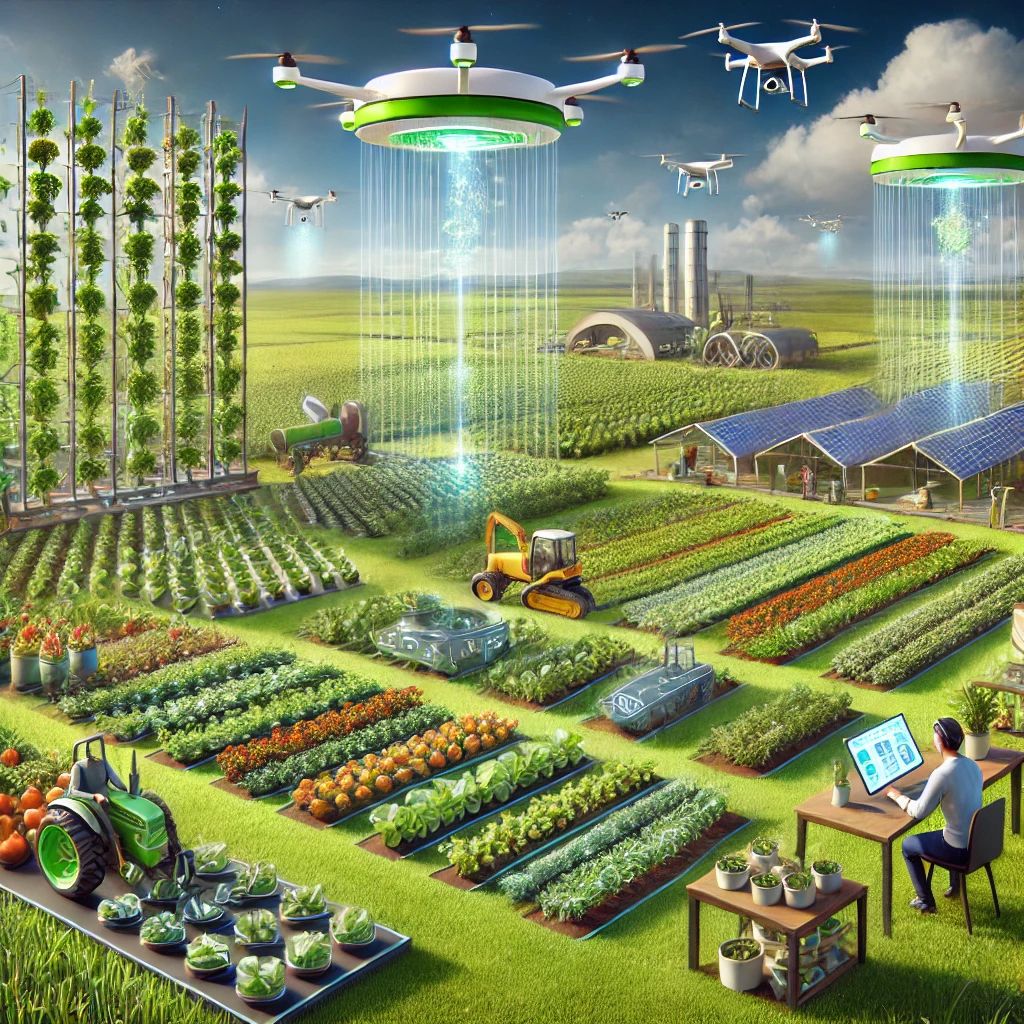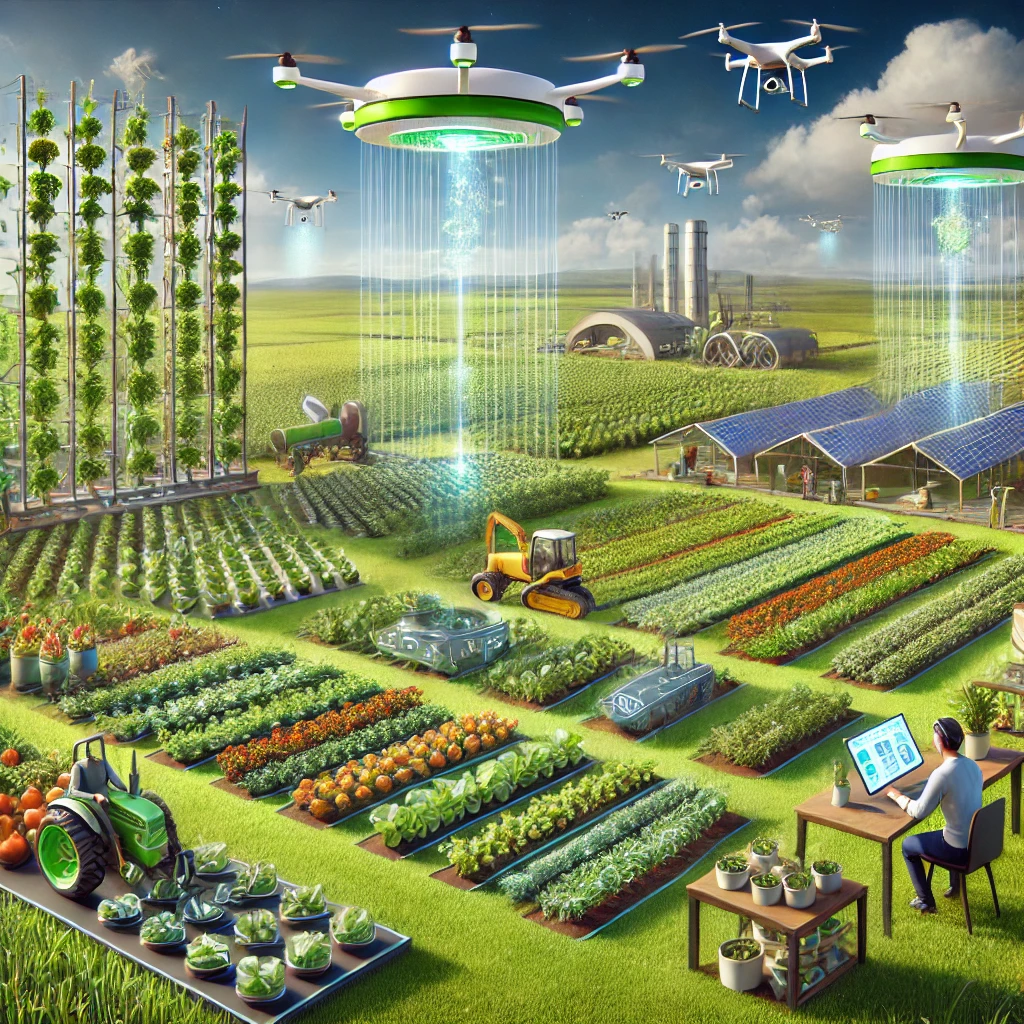Agriculture is the backbone of human civilization, providing food, raw materials, and employment for millions worldwide. As global populations grow, the demand for food production increases, making innovation and sustainability essential for the future of agriculture.
Modern Agricultural Innovations
1. Precision Farming
Precision farming uses GPS, sensors, and data analytics to optimize crop production. Farmers can monitor soil conditions, moisture levels, and plant health in real-time, ensuring efficient use of resources.
2. Genetically Improved Seeds
The use of F1 hybrid seeds has revolutionized agriculture, increasing yield, disease resistance, and adaptability to climate change. Advanced breeding techniques help develop crops that require fewer inputs but produce higher outputs.
3. Agri-Drones and Automation
Drones are widely used for crop monitoring, pesticide spraying, and field mapping. Automated machinery, such as robotic harvesters, reduces labor dependency and improves efficiency.
4. Hydroponics and Vertical Farming
With limited arable land, hydroponics and vertical farming allow crops to grow without soil, using nutrient-rich water solutions. These methods maximize space and reduce water consumption, making them ideal for urban farming.
Sustainable Agricultural Practices
1. Organic Farming
Organic farming eliminates synthetic fertilizers and pesticides, promoting soil health and biodiversity. It ensures chemical-free food while reducing environmental pollution.
2. Crop Rotation and Cover Cropping
Rotating crops prevents soil depletion and reduces the risk of pests and diseases. Cover crops, such as legumes, enhance soil fertility and prevent erosion.
3. Water Conservation Techniques
Drip irrigation and rainwater harvesting help minimize water wastage. Farmers are also adopting drought-resistant crop varieties to cope with changing climate conditions.
4. Agroforestry
Integrating trees with crops and livestock creates a balanced ecosystem. Trees provide shade, prevent soil erosion, and act as carbon sinks, improving environmental sustainability.
The Role of Technology in Agriculture
Digital platforms connect farmers with markets, providing real-time pricing and weather updates. Mobile applications help farmers manage their farms efficiently, while blockchain technology ensures transparency in supply chains.
Conclusion
Agriculture is evolving with advanced technologies and eco-friendly practices. Farmers, agribusinesses, and policymakers must collaborate to ensure food security and environmental sustainability. By embracing innovation, we can build a resilient agricultural system for future generations.





